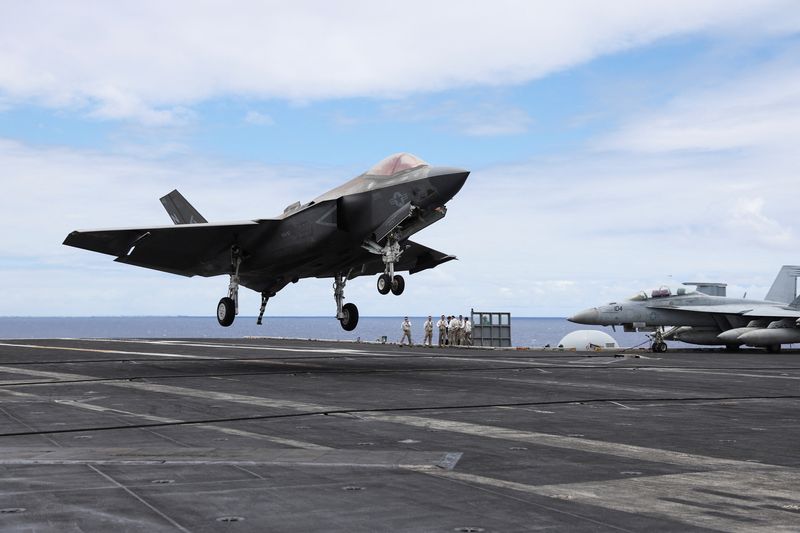US resumes taking F-35 after delays over software upgrade
2024.07.20 09:35
RAF FAIRFORD, England (Reuters) – The United States has resumed taking delivery of F-35 jets with an interim upgrade after a months-long halt due to software delays, and will withhold some payments until remaining enhancements are ready, senior officials said on Saturday.
Lockheed Martin (NYSE:) and key suppliers have been upgrading the jets under a programme called Technology Refresh 3 – or TR-3 – that aims to improve displays and processing power.
“We are starting to accept deliveries of TR-3…It is a truncated version…and does not have all the functionality that we want, but it is far enough along that we can accept delivery now,” Secretary of the Air Force Frank Kendall said.
TR-3 involves both hardware and software improvements and is seen as a pillar of a wider upgrade to the stealth jet known as Block 4.
“The hardware of that seems to be coming along fine but the software is lagging,” Kendall told reporters at the Royal International Air Tattoo in Britain.
“We are at a point now where we can accept aircraft with the understanding that additional increments of software have to go in to get it to where we need it to be.”
Andrew Hunter, assistant Air Force secretary for acquisition, technology and logistics, said the decision to restart deliveries without the full software upgrade had been taken in part to prevent knock-on delays to other features.
“Waiting and waiting and waiting to finalise those capabilities that weren’t quite ready is actually holding up progress on some of the later capabilities that we also really need,” he said.
Hunter confirmed the Pentagon will continue to withhold some final payments for each jet, but did not specify the amount.
About $7 million of the final payment for each jet, worth roughly $100 million each, has been withheld to date.
“Not everything we contracted for has been delivered… We will not pay for that which we have not received,” Hunter said.

He added, however, that the scramble to complete TR-3 had helped improve co-operation between companies on the world’s largest defence programme.
“We are going to work very hard to ensure that that process of bringing down those barriers continues so that Block 4 comes through when we need it,” he said.








